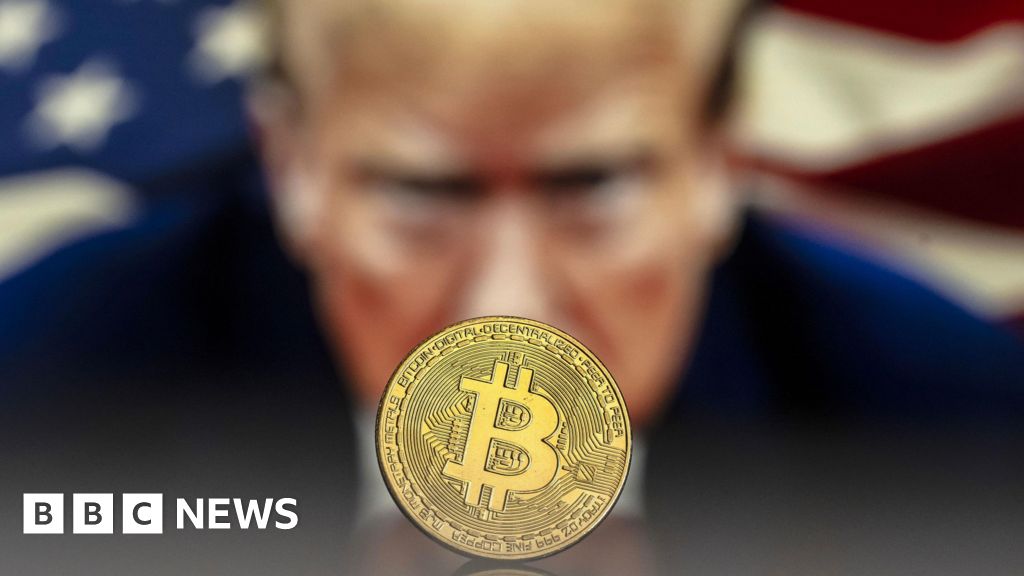

In an unprecedented move that has sent shockwaves throughout both the financial and political sectors, former President Donald Trump has ordered the United States to establish a Bitcoin reserve. This directive, according to a statement from the White House, mandates the US government to stockpile cryptocurrencies that have been forfeited in criminal or civil proceedings. The objective of this unprecedented move is still unclear, but it serves to highlight the increasing recognition of digital currencies in the financial landscape.
This development has elicited a flurry of reactions from various quarters. Cryptocurrency enthusiasts view it as an endorsement of digital currencies, while skeptics are questioning the rationale behind such a decision. Regardless, this development marks a significant shift in the US government's approach towards cryptocurrencies and could potentially have far-reaching implications on the future of digital currencies and blockchain technology.
The Strive for a National Crypto StockpileIn an unprecedented move, former President Donald Trump has called for the establishment of a national cryptocurrency reserve. This reserve will hold cryptocurrency that has been forfeited to the government as a result of criminal or civil proceedings, according to a statement from the White House. This decision marks a significant shift in the US government's stance towards cryptocurrency, a subject that has been met with mixed reactions from various sectors.
The use of cryptocurrencies, such as Bitcoin, has been on the rise globally. However, their unregulated and decentralized nature has made them a favored tool in illicit activities, such as money laundering and fraud. The establishment of a national crypto reserve could serve as a measure to curb these activities while also legitimizing the use of digital currencies.
The move also signals a recognition of the growing importance of digital assets in the global economy. The reserve could serve as a tool for the government to better understand and manage the risks and opportunities associated with cryptocurrencies. Additionally, it might provide the government with a means to profit from the often volatile cryptocurrency market.
However, critics argue that the creation of a crypto reserve could lead to a centralization of power and potentially undermine the fundamental principles of cryptocurrencies. They fear that this could allow the government to exert undue influence over the cryptocurrency market, thus defeating the purpose of a decentralized digital currency.
Implications and ReactionsWhile the government's decision to set up a Bitcoin reserve has been met with a mixed bag of reactions, it has certainly brought the conversation surrounding cryptocurrencies back into the spotlight. Some analysts argue that this move could potentially be a step forward in legitimizing cryptocurrencies. They believe that by recognizing and holding Bitcoin in a reserve, the government is indirectly acknowledging the value and potential of digital assets.
Others, however, express concerns over the possible implications of this decision. Critics worry that the government's involvement could increase regulatory scrutiny on cryptocurrencies, potentially stifling innovation and adversely affecting the market. There are also concerns about the lack of transparency and oversight in how the government will manage the reserve, especially given the volatile nature of cryptocurrencies.
Despite these differing viewpoints, one thing is clear: the decision to establish a Bitcoin reserve is a significant development that could influence the trajectory of cryptocurrencies in the future. It marks a departure from the government's previously skeptical stance on digital assets and could pave the way for more comprehensive policies and regulations in the future.
However, as with any major policy shift, it will be important to monitor the impact of this decision closely, especially as it relates to the broader cryptocurrency market and the government's role in it.
Cryptocurrency in Criminal ProceedingsIt's not entirely new for the government to seize cryptocurrencies in criminal proceedings. In fact, the United States Marshals Service has routinely auctioned off Bitcoin and other cryptocurrencies that have been confiscated in connection with various criminal cases. However, this new directive to establish a dedicated cryptocurrency reserve signals a shift in policy.
According to Dr. Sarah Allen, a leading expert in financial law and cryptocurrency, "The move to establish a cryptocurrency reserve suggests a recognition of the increasing prominence of digital assets in today's economy. It could also potentially provide the government with a new tool to manage economic fluctuations."
Dr. Allen further explained, "In recent years, we've seen a significant increase in the use of cryptocurrencies in both legitimate business transactions and illegal activities. By holding onto these seized assets, instead of auctioning them off, the government could potentially leverage them for economic or strategic advantages."
Final ThoughtsPresident Trump's order to establish a Bitcoin reserve signifies a shift in the US government's stance towards cryptocurrency. The creation of this reserve, which will hold cryptocurrencies forfeited in criminal or civil proceedings, is an unprecedented move that could potentially impact the global financial landscape.
While this development raises numerous questions about the future of cryptocurrencies and their role in the economy, it also points to the increasing recognition of digital assets. As the world continues to grapple with the implications of this decision, it's clear that cryptocurrencies are becoming a more integral part of the financial conversation.
Politics & Global Affairs
With over a decade of experience covering government, policies, and international relations, Alex dives deep into political dynamics and geopolitical shifts. His work is dedicated to cutting through partisan noise and delivering objective, fact-driven political insights.